Margaret Morris’ mother, like a million mothers before her, used to come home with those Clinique giveaways, tester-sized packages of makeup and skin-smoothing agents in pale green tubes. The name sounded like they were fresh off the Concorde from Paris, although in reality, Clinique products were created and made by an American company, Estée Lauder. These cleverly marketed potions were full of promises for blooming complexions, and as a teenager in Auburn, Morris did her fair share of browsing beauty products like them at the mall.
These days though, Morris buys Maine honey by the five-gallon jug, orders beeswax and shea butter online and mixes up recipes for skin care products in her own kitchen in Brunswick. She sells her line, Five Islands Body Co., at farmers markets, local boutiques, health food stores and online using Shopify’s services. Morris is one of a growing number of Mainers who have gone into the skin care business in recent years, making use of Maine ingredients and capitalizing on a local aesthetic that is far more Ivory Girl than Parisian sophisticate. You’d be hard pressed to find anyone in this crowd making blue eye shadow; the Maine-made product is more typically about enhancing an already natural look with everything from rosa rugosa to seaweed.
“There’s this whole aura surrounding the Maine-made beauty products,” said Tammy Knight, who runs the state’s Maine Made program, a marketing effort run through the Department of Economic and Community Development, and who ushered Morris into its fold of about 2,100 “makers” a few months ago. “There’s this handcrafted element, that somebody is actually touching it and doing the mixing and the testing. It evokes the state. It is clean and it is pure.”

Amanda Nelson of Long Winter Soap Company cuts soap at her Waldoboro store.
Newcomers like Morris are part of today’s local movement, but they’re following in some big, even giant, footsteps. Maine is where Tom and Kate Chappell experimented with Tom’s of Maine toothpaste and such in the 1970s and where Roxanne Quimby and Burt Shavitz started the mega-successful, natural skincare company Burt’s Bees in the 1980s. Then there is Deb Soule’s Avena Botanicals, whose organic herbal remedies include consumables like elixirs and teas but also salves and skin creams such as Fairy Flower Creme, a stalwart in many beauty regimes for 28 years. Going back even further? In 1934, beauty magnate Elizabeth Arden opened the Maine Chance Spa in Mount Vernon, which was operational until 1970.
Those companies do have an influence in today’s new product makers.
“Obviously, Burt’s Bees was a magical formula,” said Gabrielle “Gabs” Melchionda of Mad Gabs, a Yarmouth-based maker of natural and organic lip, body and foot balms. “She (Quimby) paved the way for people like me.” (In the department of small world Maine, Melchionda used to be married to one of the Chappell’s sons.) Claire Weinberg of Dulse & Rugosa, a botanicals company that got its start in 2012 on Gotts Island off Mount Desert Island, said Maine’s skin and personal care magnates served as an inspiration for the “big idea” that brought Dulse & Rugosa into existence. So did legendary Maine homesteaders Helen and Scott Nearing. Weinberg and her daughter (and business partner’s) desire to live and work on Gotts Island mirrored the Nearing’s commitment to place, she said. But, she said, inspiration only goes so far in practical terms.
“I knew there were great companies out there, but I was also clueless about business,” Weinberg said, laughing. “We have made a lot of mistakes.”

Lucas McNelly holds his 5-month-old son, Rhys, while making lip balm at Long Winter Soap Co.
For Morris, the inspiration to open a business was born of frustration with one of those famed Maine companies about six years ago. She’d been using a body butter product made by Burt’s Bees, which is now owned by the Clorox Company and run out of Durham, North Carolina, and liked it, but when she went to buy more of it, something seemed different. “The formula seemed to have changed drastically,” she said. The fragrance was “funky.” She shopped around. “I just couldn’t find something that didn’t have perfume or synthetic ingredients.”
Morris already had a do-it-yourself impulse, and she went looking for recipes. In 2011, while her infant daughter (now 6) was napping, Morris would be melting ingredients, sliding them into the fridge to firm them up and testing them on herself. Soon Morris was making not just body butter she could use on her baby, but lip balms and then lotions and hand creams, made with essential oils instead of perfumes. She’d pass on extra to friends and family. Positive feedback encouraged her to start selling her line in 2015. Now, with her Maine Made certification, she’s poised for growth.
SMOOCHES AND
That’s not always an obvious path, and it rarely leads to the kind of payouts Quimby or the Chappells got when they sold their companies to conglomerates (Quimby reportedly more than $300 million, Chappell, about $100 million). Melchionda said she operated “on a shoestring” for 25 years and only moved past being a cottage industry about three years ago, when her kids were a little older (they’re 13 and 17).
“I never stopped working, but I never pushed the way I would have had I not had kids,” she said.

Amanda Nelson of Long Winter Soap Company speaks with Jane Lichtman, 94, of Waldoboro after Lichtman stopped by Nelson’s new store while walking her dog, Peanut. Left: Nelson puts a jar of a raw sugar scrub called Stinky Feet Patrol on a shelf at her store.
Initially, her lip balm making was an offshoot of a “hippie” lifestyle, she said, almost a hobby for a good four years. Then in 1997, QVC, the television shopping channel, came to Maine looking for companies to promote. Mad Gabs was one of them. Still, many of her sales involved shoe leather and time in the car, driving to natural food stores all over Maine.
For the last two years she and her staff have been delivering to Hannafords all over the region, 87 in all. They just made the grade to get into the warehouse.
“You have to earn your chops,” Melchionda said.
As a longtime Maine maker, she says she tries to be helpful to newcomers in the beauty business. Gaining entry to the business has never been easier – throwing up a website and finding someone to print labels is a snap. Sustaining a business is a lot harder.
“I have seen so many people come and go in the last 10 years,” she said. “Honestly, it takes a long time to make it happen.”
Though she’s always worked with organic and natural ingredients, her packaging is far less homespun than say, the classic Burt’s Bees look. “They have stayed true to the yellow and tan thing,” Melchionda said. “Kind of gender neutral. I can’t be that calm with my packaging.”

Amanda Nelson of Long Winter Soap Company places a raw sugar scrub called Stinky Feet Patrol on the shelf at her Waldoboro store.
Like say, her Huckleberry Bear Smooch Lip Balm. It’s made with organic extra-virgin olive oil, organic beeswax, Vitamin E and organic flavor. But nothing about it screams homespun or handmade or “farm” or for that matter, “Maine.” She ships her products in plant-based “peanuts” and recycled newspapers.
She’s not tapping into that crafty, Maine aesthetic like many of the others, but that may be a product of practicality.
“It is hard to make money selling three of this and five of that,” she said. “Mass-produced gets a bad rap, but that is when you make money.” She places Mad Gabs in an in-between zone she dubs “affordable organics.”
The company has dabbled in shimmers and glosses, but that’s as close as she’s gotten to makeup. “Our line was always to encourage natural beauty and health in women and girls,” Melchionda said. “I have no idea how you make mascara. I am not interested in that.”
HEAD AND SHOULDERS (AND SKIN)
Maine Revenue Services doesn’t track beauty-related businesses, so it’s difficult to quantify exactly how many new makers are producing Maine-made beauty and skincare products. But the list includes an oyster farmer in Scarborough and a mother in Waldoboro, whose success with an item inspired by the 2016 presidential election helped fund a bricks and mortar store.
What they have in common, besides Maine and typically gender (women dominate this business) is that their entrepreneurship stemmed, as Morris’ did, from a need to address a very specific personal need, whether for themselves or a family member. And as that need was met, a financial imperative kicked in; the way they helped themselves could also be a way to help cement a future in Maine.
For Claire Weinberg, it was about hair. Specifically, dandruff. She is not shy about admitting she had it. Her itchy scalp started in high school and hardly ever let up, despite medicated shampoos and a stash of shampoos and conditioners that quite clearly implicated her as a heavy consumer, the kind who would wash her hair every day and go through seven (plastic) bottles a month. “I was a hair product junkie,” Weinberg said.

Lip balm at Long Winter Soap Company. Long WInter’s Amanda Nelson has sold her soaps on Etsy and Shopify, and this month opened a brick and mortar store in downtown Waldoboro.
She was teaching and so was her daughter Carly, a recent College of the Atlantic graduate. Both of them were eager to spend more time on Gotts Island near Bass Harbor, where they were the only year-round residents. They tried farming, like the Nearings, but even in the summer there weren’t enough other people around to sustain a living. Then one day Claire came home and found Carly cooking up seaweed in the kitchen; she was working on a shampoo that might help her mother get off the product treadmill.
That was 2012. Their company, Dulse & Rugosa, is best known for its shampoo bars (hard, round and cured for a month). The constants in their various products, which include a “sunburn survival” kit, tend to be rosa rugosa and seaweeds, including sugar kelp and oarweed, harvested from Gotts Island by Carly, who is a licensed harvester. and the Weinbergs are at what feels like a turning point (at presstime, Claire Weinberg had her fingers crossed that “Marie Claire” would be mentioning, or even, endorsing, one of Dulse & Rugosa’s products in its June issue). To sell, she roves farmers markets in Maine and as far south as Boston, and they continue to expand their product line. But she hasn’t quit her part-time teaching job yet and questions, can they make a go of it full time?
“I’m wondering, is doing these other things actually holding me back?” Weinberg said.
Amanda Nelson of Long Winter Soap Company has been in the skincare business for a decade now – her inspiration was her oldest daughter’s cradle cap, which needed the gentlest of soaps – cooking up soap and lip balms and skin cream at her home in Waldoboro, in “small batches from sustainably-obtained ingredients,” and selling them first on Etsy and then on Shopify.
“With this economy, you have to kind of make your own job,” Nelson said. “Because there are no jobs here.”
But this month she made a big move, into her first brick-and-mortar store in downtown Waldoboro. The morning after the debate where Donald Trump called Hillary Clinton a “nasty woman,” Nelson and her husband, Lucas McNelly, dreamed up a new lip balm flavor, “Nasty Woman.” (It’s flavored with coffee and walnut, in case you wondered.) The Maine Democrats put in an order immediately and the lip balm went viral. Nelson and McNelly sold about 18,000 of them, Nelson said, and helped fund the new store. “It made it so we didn’t have to borrow anything.”
THE MAINE INGREDIENT
Nelson’s soaps are seriously striking, with artful and unexpected designs. She packages them in muslin bags and tests “on friends, not animals” She uses essential oils. “I stay away from the ones that aren’t sustainably harvested,” Nelson said. That includes sandlewood (“crazy over-harvested.”) But she does use many ingredients that come from far away, including palm oil, which is criticized by many environmental groups because rainforests and other critical habitats are often cleared to produce it; she says hers is certified as sustainably harvested.
Herein lies an interesting issue with many Maine-made beauty products. Just because they’re handcrafted in Maine doesn’t mean they’re made with ingredients sourced from Maine. For example, Nelson uses Dead Sea salts, not Maine salt.
“The Maine sea salt is so expensive right now. It (her product) would have to be at a crazy price point.”

Amanda Nelson of Long Winter Soap Company bottles a raw sugar scrub called Stinky Feet Patrol at her Waldoboro store.
Weinberg doesn’t use Maine sea salt either, and for the same reason, but something like Dulse & Rugosa’s “Sinus Relief” smelling salts includes calendula and bachelor button flower petals grown on Gott’s Island. That sourcing is key to her marketing, as is her effort to get to zero waste with packaging (mostly paper and glass, except for the lip balms).
“The great thing about skin care is, everybody has skin,” Weinberg said. “And hey, instead of buying something that has maybe come from China and you don’t know where the ingredients came from, you can buy it from a Maine farm.”
About 80 percent of the ingredients in Deb Soule’s Avena Botanicals are grown in Maine on Avena’s organic and biodynamic farm. Avena grows its herbs outdoors on about 3 acres, Soule said, and uses a greenhouse to start about 5,000 seedlings.
The ingredients she does have to source from away, including olive, coconut and almond oils, are all organic. It has gotten easier to find those organic ingredients in the last 13 or so years, she said. That sourcing, either from Maine or through organic and ethical producers, is important to Soule.
“The Maine Made label is a wonderful label,” Soule said. “But it can be a little confusing to people if they are products that are being made in Maine, but they are getting many of the ingredients from elsewhere.”
Her own growth has been slow and steady. If she wants to make, say, a face cream with rose petals as a key ingredient, she has to cultivate the roses. Her hedgerow of rosa rugosa, the only biodynamically grown rugosa in the country, she said, last year yielded 40 pounds of rose petals. That’s petals, those nearly weightless things, not hips or flowers.
“I don’t have a business or a marketing department,” Soule said. “I am an herbalist and an herb farmer.”
SEA FARMING
Another farmer with a sideline in the skincare business is Abigail Carroll, whose oyster farm in Scarborough, Nonesuch, is shared with her line of beauty products, Nonesuch Skin Care. The oyster farm came first and cultivating oysters in chilly waters motivated her experiments with Maine ingredients, including seaweed. She’d been a day trader in Paris, living a, well, Parisian life, and suddenly she said, she’d acquired “these lobsterman hands.”
“Some days I couldn’t wash my hair because my hands were so cracked and bleeding,” she said. “I was really worried about the damage I was getting.”
But as rough as the elements were on her skin, some of them seemed to hold promise of a fix. “If you just pick up seaweed and rub it on your hands you will see a difference,” she said. “It will put this nice little film of a protector on your hands.”
Nonesuch Skin Care has had to be sidelined sporadically during the last few years – the oyster farm is the priority – but she’s made marketing inroads in unexpected ways. When she brought oysters to an event in New York hosted by author and oyster expert Rowan Jacobson, she brought samples of her hand salve. Connections have led to high-end shops, like the New York Yacht Club’s store in Newport, Rhode Island, or Clutch, a boutique in Nantucket.
“I’m not trying to do what Tom’s of Maine or Burt’s Bees does,” Carroll said. “We are a little more upscale.”
Pricewise, Nonesuch products tend to be comparable to say, Kiehl’s instead of Burt’s Bees or Five Islands. For example, that Maine-harvested sea salt that makers like Morris, Nelson and the Weinbergs shy away from because of its cost? Carroll uses it exclusively in her body scrub ($45).
“We want to make beautiful products, whether they be oysters or skincare products, that have a little smattering of luxury but are really all about the nature, that tell a bigger story about the Maine coast.”
Part of what has kept her pace slow and deliberate is a desire to make good choices, sustainability wise, in packaging. “We want our products to really reflect our values as farmers, because our interests as farmers are really tied to the environment.”
She’s working on a product now that will incorporate oyster shells, cooking ingredients in her kitchen and testing on friends (“Maine divas” she jokes). Unlike some of the other do-it-yourself skincare makers, she’s had help from consultants with deep expertise to help her iron out the kinks. One is Kirsten Marsh, a friend from graduate school who spent much of her career working in the cosmetics business in Paris.
“She worked in New York and Paris and London,” Carroll said. “She worked for everybody. She started at Clinique.”
Clinique again; in the beauty world, the same names tend to resurface. But these Maine entrepreneurs are hoping to make an impact with a whole new set of names.
Mary Pols can be contacted at 791-6456 or at:
Twitter: MaryPols
Send questions/comments to the editors.


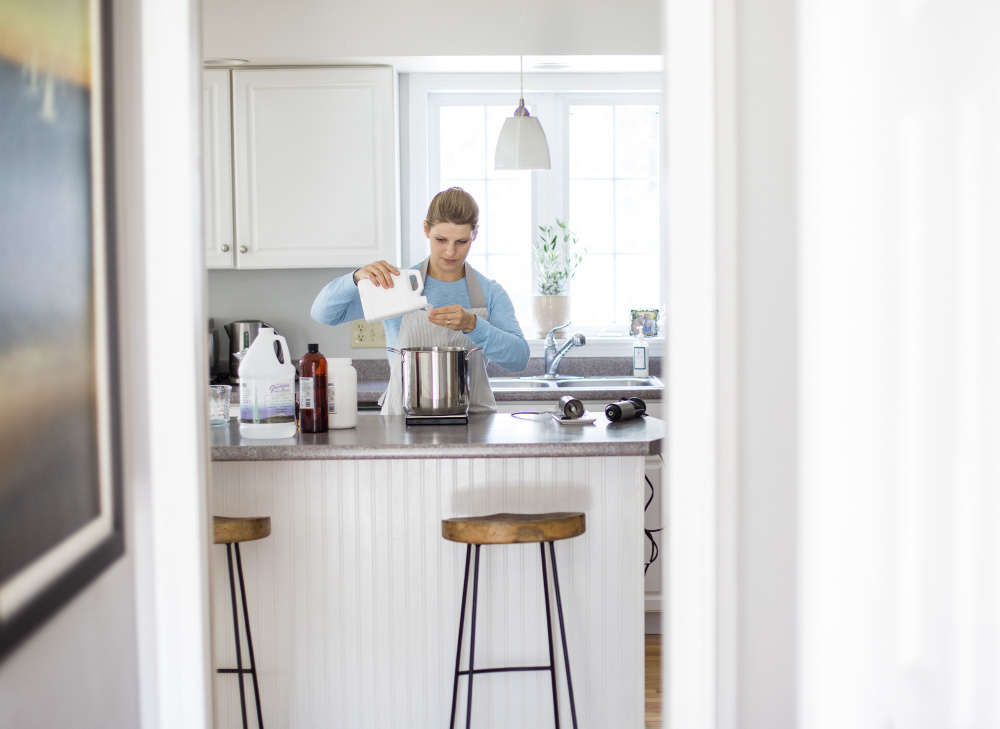
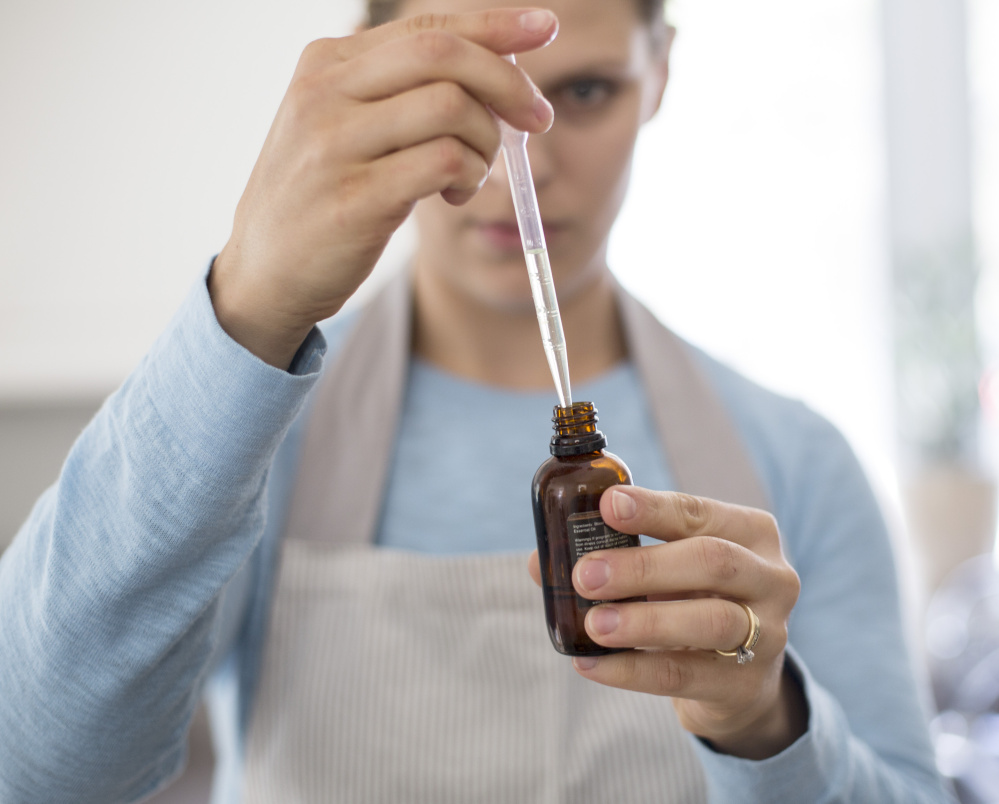
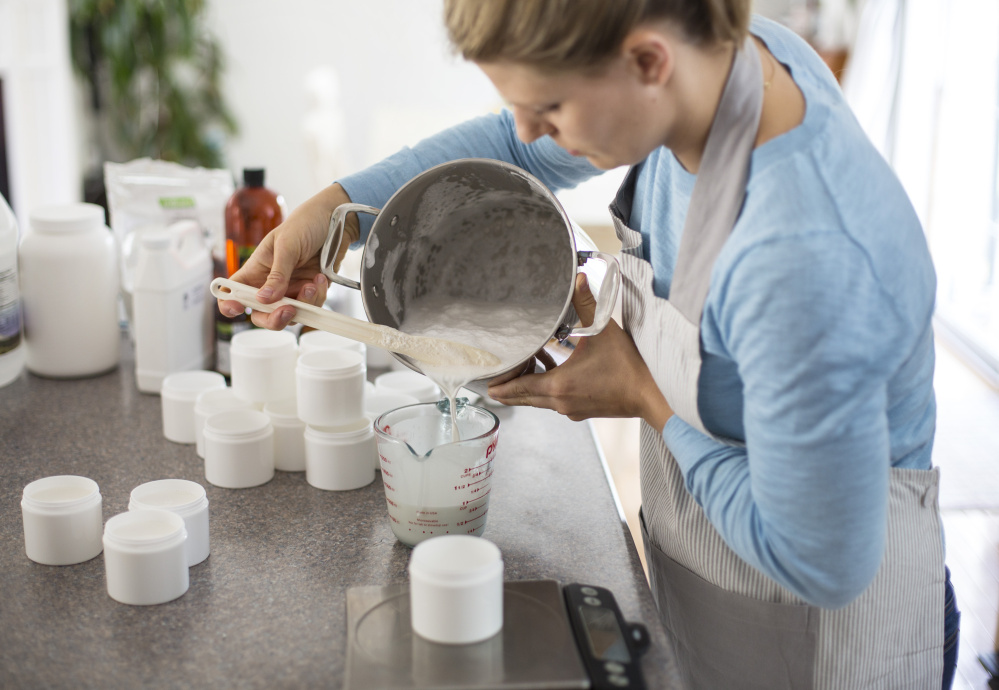
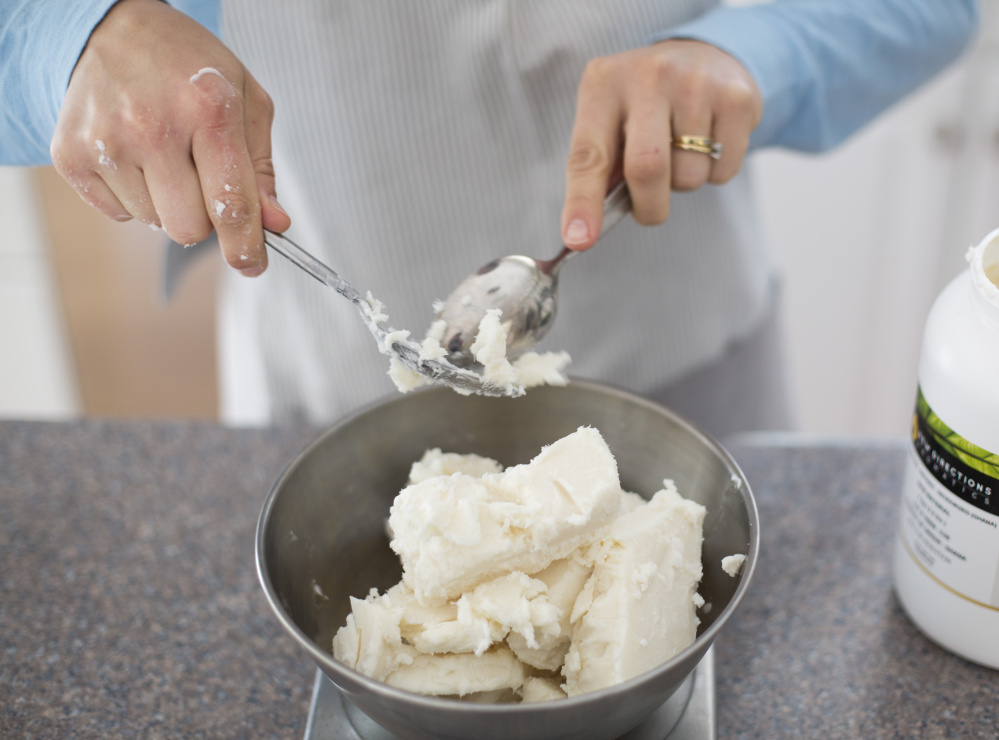
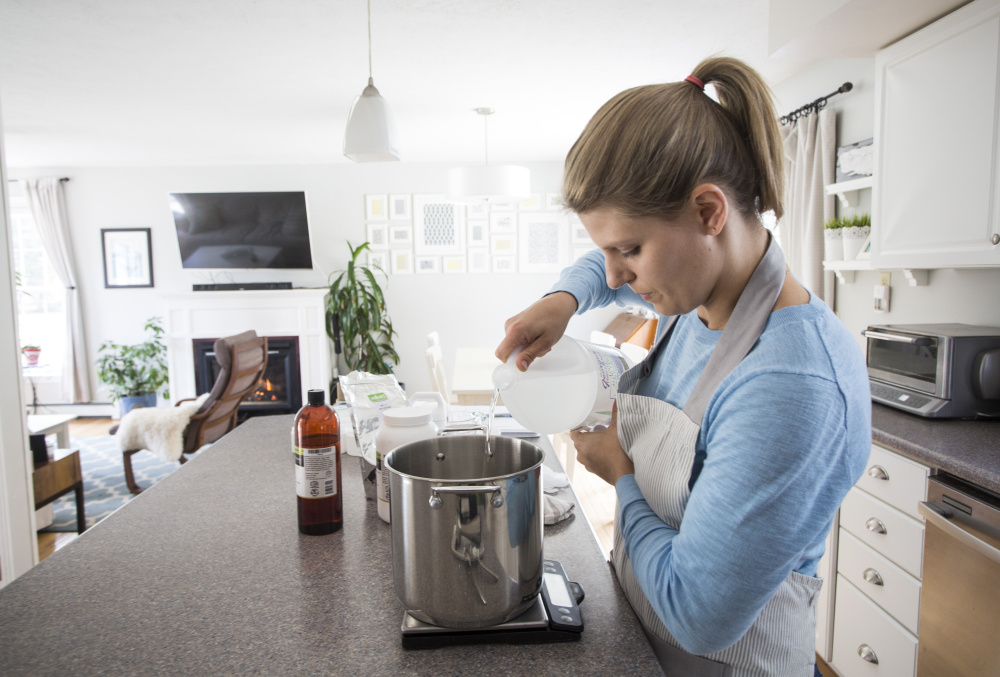
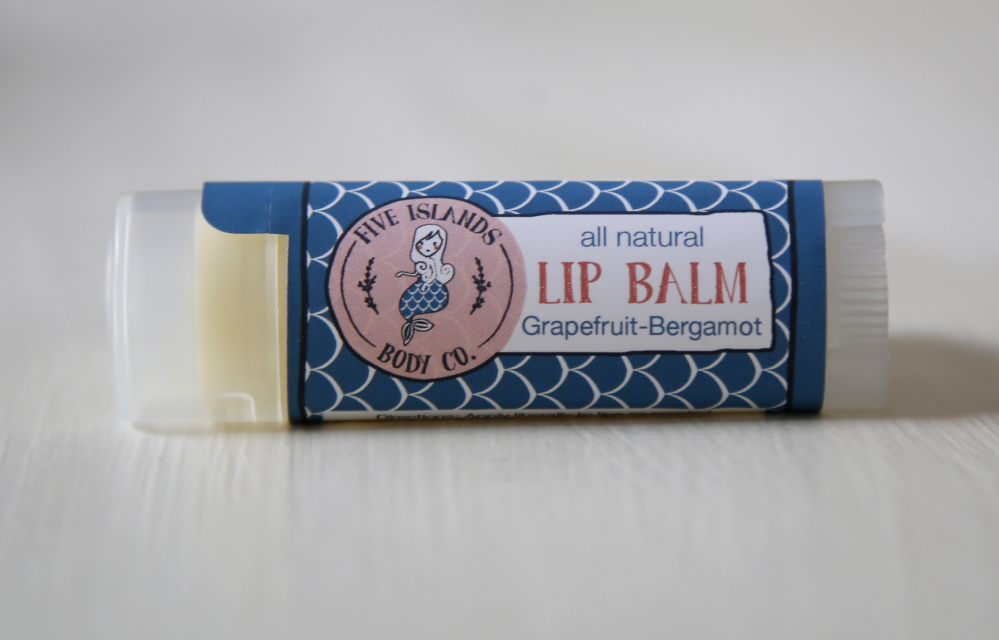
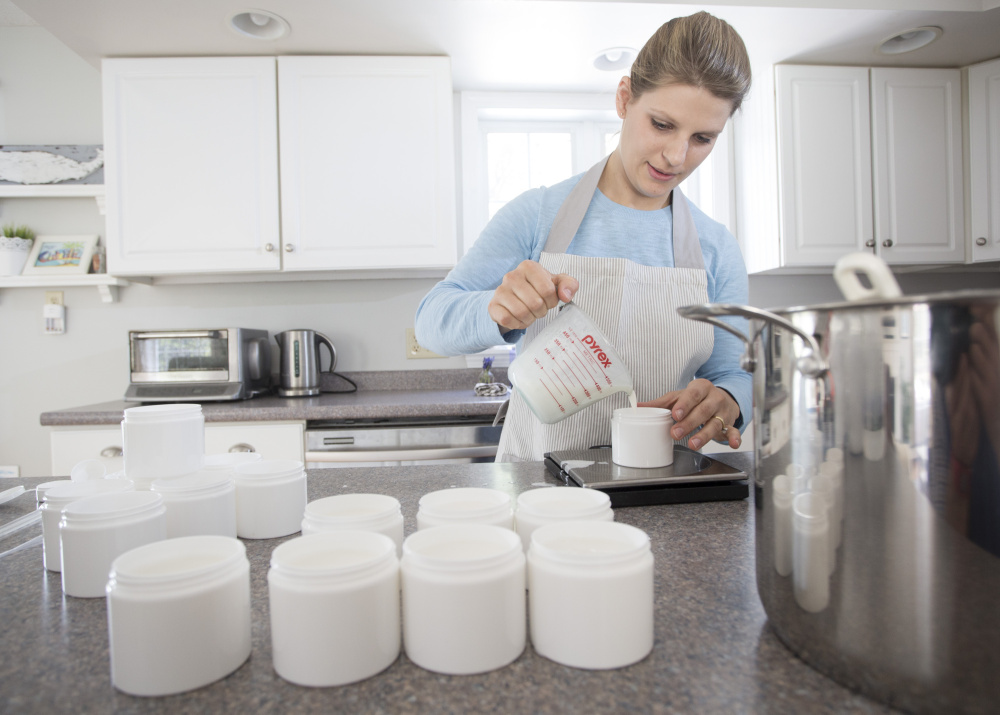
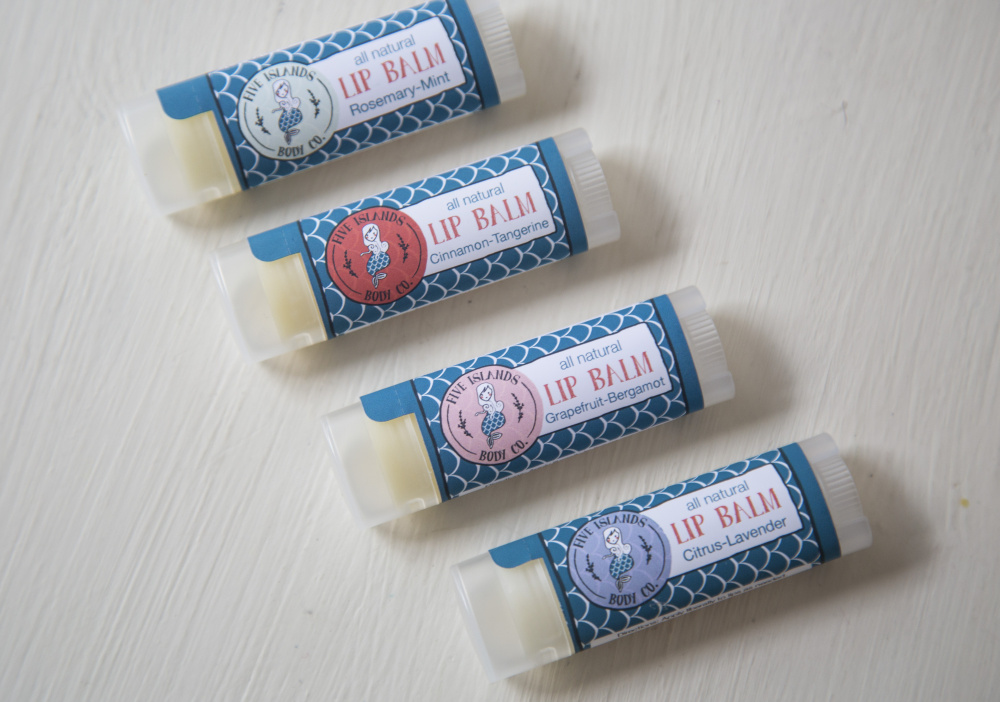
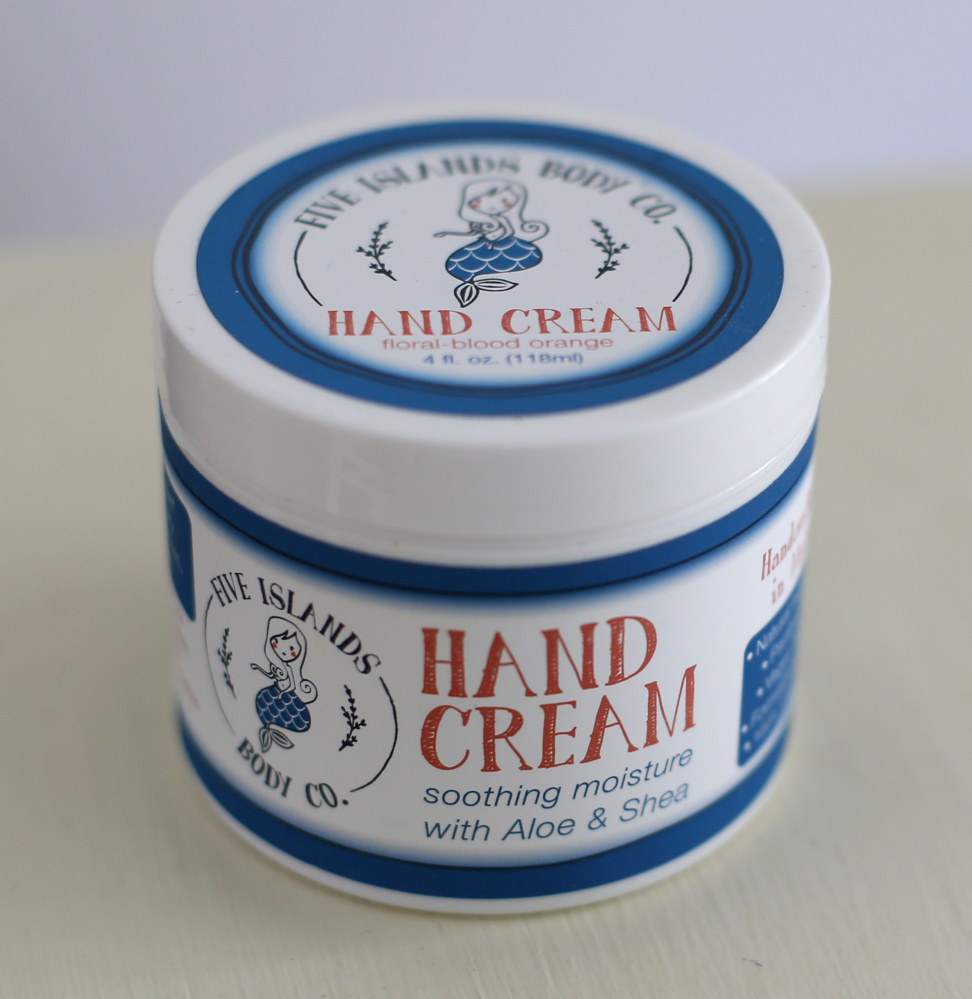
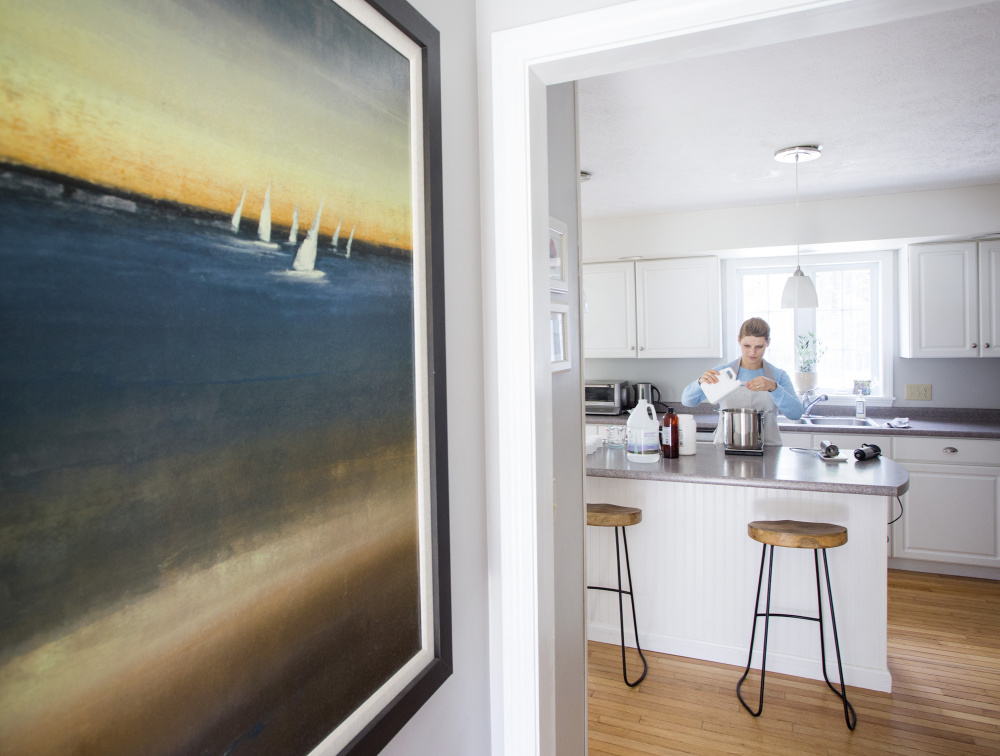

Comments are no longer available on this story